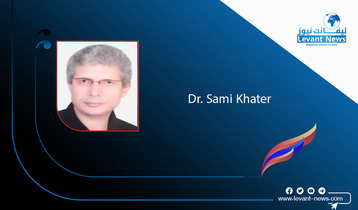-
The cries of Iranian women and my little sister Farah

public floggings, economic disempowerment, social stigmatization: These are daily reminders to the women of my country, Iran, that in the eyes of their government they are lesser.
Every day, this reality is reinforced by untold abuses, restrictions, and insults – perhaps none of which is more appalling than the travesty of girls, as young as nine, who are forced to marry men decades their senior.
When I hear of these sickening acts, I can’t help but think of my little sister, Farah.
Farah is fifteen. She’s smart, athletic, beautiful, and free, although she would argue against that last part. Like all young women, she is engaged in a constant battle with our mother to challenge every limit she can.
Farah is a force to be reckoned with, like her namesake, our grandmother. I know she has the potential to channel that into great things. So it’s painful to imagine all of her potential, her life, stolen from her by a regime that despises her.
It is difficult to imagine her in an early marriage when she still has so much maturing, emotionally and physically, left to do.
Farah is accepted by friends, encouraged by teachers, and offered every opportunity to succeed. But who would she have been if society hadn’t propelled her forward, but had instead forcibly veiled her and violated her most fundamental rights?
Farah is growing up at a time when the women of the west are removing the remaining roadblocks in their path to full equality. While that progress continues, it is imperative that the stories be told of the heroic women of Iran who are fighting back against the threats to their rights and their very existence.
These strong and proud women are beaten down by legal discrimination, economic injustice, and social prohibitions. The World Economic Forum’s 2018 Global Gender Gap report, which ranks countries on “their progress towards gender parity,” ranks Iran 142nd out of 149 nations.
Iranian women are prohibited from the rights of divorce and equal inheritance, barred from travel without their husbands’ permission, and systematically discriminated against in the job market. There are also limitations on the subjects that Iranian women, who make up more than 60 percent of university students, can study.
Farah is bonded to my mother in a different way than my sister, Iman, and I are. We had each other growing up, but my mother calls Farah her little soulmate. Had Farah grown up in Iran, she might have lost our mother this year, because of the lack of attention to women’s medical care there. The issue of women’s health in Iran became even clearer after my mother’s recent cancer diagnosis and her subsequent campaign to raise awareness about the disease.
Everyone has a story – and those of the women of Iran are truly harrowing. Through social media, they tell me of the limits they face and the abuses they endure, which are heartbreaking. Women are harassed by “morality” police and denied jobs, which might insult their husbands’ dignity.
But Iran was not always like this. These restrictions are not holdovers from a bygone era or unenforced, vestigial statutes yet to be ameliorated by reformers.
Prior to the Islamic Revolution, my grandfather and great-grandfather instituted widespread reforms granting extensive rights and protections to women. Their vision supported the progress of a generation of women. Many of those same women were instrumental in passing the Family Protection Laws of 1967 and 1975, which took massive steps to establish equality.
These laws banned polygamy, granted women the right to divorce, and raised the age of marriage for women to 18.
After 1979, each of these was annulled. In December 2018, a motion to partially limit the practice of forced child marriage and raise the age of marriage for girls to 13 was defeated.
These systematic violations of the basic rights of women in Iran are calculated limitations on their independence and attempts to suffocate their natural strength and courage, and they must not prevail.
Iranian women, like Farah, are independent and strong-willed, so they will continue to fight their oppressors every day, but they need support. The present wave of demand for greater women’s equality can’t just be for western women. It has to be for all women.
The encouragement, validation, and freedom Farah has had are exactly what the women of Iran deserve. If you pay attention, you will hear millions of Iranian women shouting, not to be saved, but to be heard. Will you listen?
Princess Noor Pahlavi is the first child of Iran’s former Crown Prince Reza Pahlavi. She’s an MBA student at Columbia University and works as an advisor to the non-profit impact investment fund Acumen.
This article was published in Persian by the Independent Persian on June 7, 2019
You May Also Like
Popular Posts
Caricature
BENEFIT Sponsors Gulf Uni...
- April 17, 2025
BENEFIT, the Kingdom’s innovator and leading company in Fintech and electronic financial transactions service, has announced its sponsorship of the “Innovation and Sustainable Technology Solutions Competition (GU - IST Solutions), hosted by Gulf University at its main campus.
This strategic sponsorship reflects BENEFIT’s active role in advancing technological innovation and fostering sustainable solutions to future challenges. It also seeks to empower Bahraini youth by enhancing their skills, capabilities, and competitiveness in innovation and solution development—contributing meaningfully to the broader goals of sustainable development across all sectors.
As part of BENEFIT’s active involvement in the competition, the company has announced that Hanan Abdulla Hasan, Senior Manager of Public Relations and Communication, will serve on the competition’s supervisory committee. Her upcoming participation reflects BENEFIT’s forward-looking commitment to championing academic and professional excellence.
Commenting on the occasion, Hanan Abdulla Hasan, Senior Manager of Public Relations and Communication at BENEFIT, said, “We are privileged to support this pioneering initiative, which aligns seamlessly with BENEFIT’s enduring commitment to fostering innovation and nurturing the potential of Bahrain’s youth. Our participation is rooted in a deep sense of social responsibility and a firm belief in the pivotal role of innovation in shaping a sustainable future. Through such platforms, we seek to empower the next generation with the knowledge, skills, and foresight required to develop impactful solutions that address future challenges, in line with the United Nations Sustainable Development Goals 2030.”
Dr. Aseel Al Ayash Dean of the College of Engineering in Gulf University commented, “We extend our sincere gratitude to BENEFIT for their generous sponsorship and support of the Innovation and Sustainable Technology Solutions Competition. This contribution plays an instrumental role in helping us achieve the strategic goals of this initiative, namely, cultivating a culture of innovation and sustainability, encouraging efforts that address the imperatives of sustainable development, and enhancing the practical and professional capabilities of our students and participants.”
The event will bring together a diverse spectrum of participants, including secondary school students, university undergraduates, engineers, industry professionals, entrepreneurs, academic researchers, and subject matter experts representing a wide range of disciplines.
The competition seeks to inspire participants to develop and present innovative, sustainable technologies aimed at addressing pressing environmental, social, and economic challenges. It encourages the formulation of business models that integrate advanced technological solutions with core principles of sustainability. Moreover, it serves as a platform for emerging leaders, entrepreneurs, and innovators to contribute to the advancement of the Sustainable Development Goals, promote the ethos of responsible technology, and demonstrate its transformative potential across various sectors.
Attendees will have the opportunity to view a series of project presentations submitted by participants, covering diverse areas such as eco-friendly product design, smart and sustainable innovations, renewable energy technologies, water conservation and management, waste minimisation and recycling, green architectural solutions, and sustainable transportation systems. Outstanding projects will be formally recognised and awarded at the conclusion of the event.
opinion
Report
ads
Newsletter
Subscribe to our mailing list to get the new updates!




















